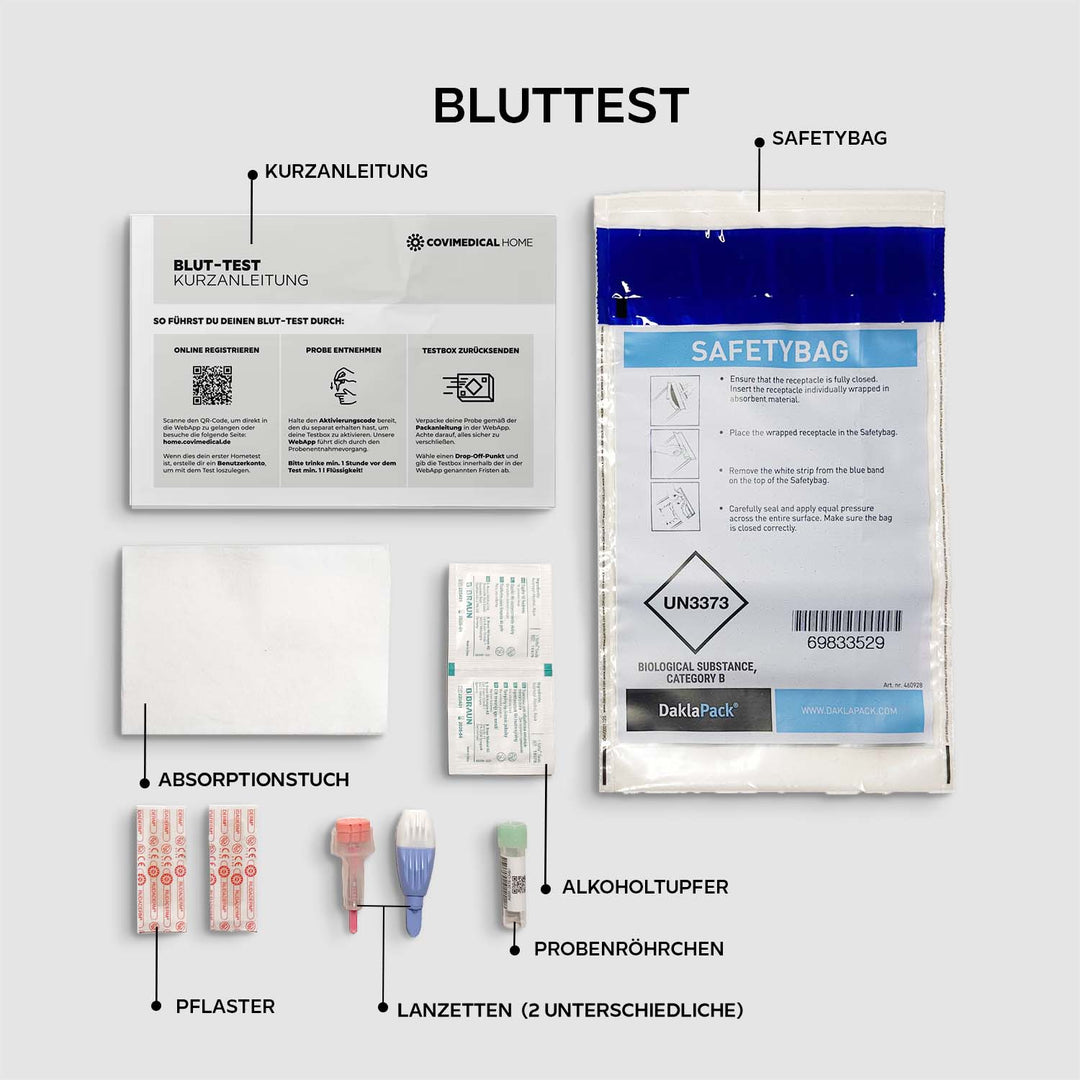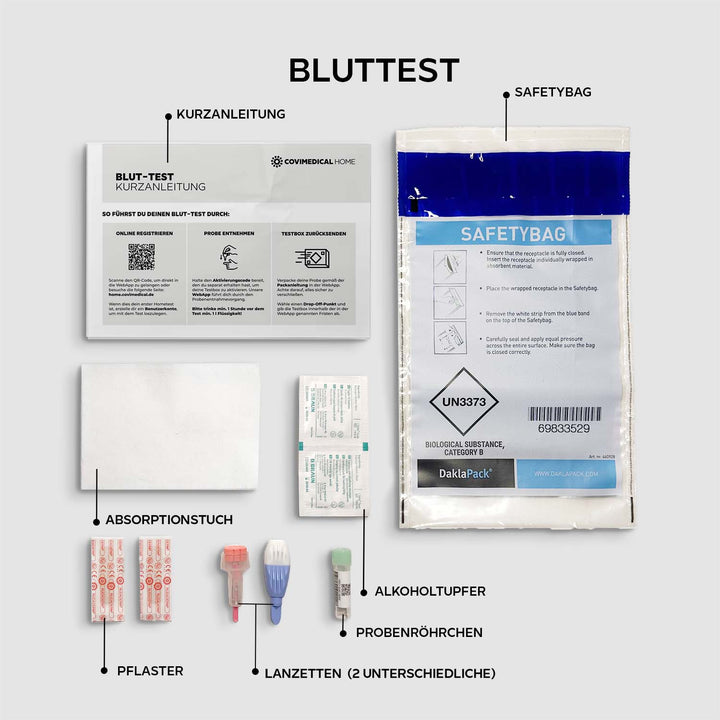This test examines your sample for 3 thyroid parameters:
TSH (thyroid stimulating hormone)
What is TSH?
• TSH stands for thyroid stimulating hormone, which is produced by the pituitary gland and stimulates the thyroid gland to produce thyroid hormones.What role do thyroid hormones play in the body?
• Thyroid hormones regulate metabolism, influence the growth and development of tissues, and affect many body functions.Why is TSH measured?
• Measuring TSH in the blood provides information about the function of the thyroid gland. An increased or decreased TSH level can indicate thyroid problems.What does an elevated TSH level mean?
• An elevated TSH level often indicates an underactive thyroid (hypothyroidism), in which the thyroid does not produce enough hormones.And what does a low TSH level mean?
• A low TSH level may indicate an overactive thyroid (hyperthyroidism), in which the thyroid produces too many hormones.What factors can affect TSH levels?
• TSH levels can be affected by stress, certain medications, pregnancy, illness, and other factors.Can TSH testing alone provide an accurate diagnosis?
• No, the TSH measurement alone is often not enough. Other thyroid hormones such as T3 and T4 as well as clinical symptoms are taken into account to make an accurate diagnosis.How often should you have TSH levels checked?
• The frequency of checking TSH levels depends on the individual situation. Regular monitoring may be necessary if thyroid problems exist or therapy adjustments are made.FT3 (free triiodothyronine)
What is FT3?
• FT3 stands for free triiodothyronine, a thyroid hormone that influences metabolism, growth and development in the body.Why is FT3 important?
• FT3 is the biologically active T3 hormone that is absorbed directly into cells and regulates metabolism and other physiological processes.What does an increased FT3 value mean?
• An elevated FT3 level may indicate hyperthyroidism, in which the body produces too much thyroid hormone.And what does a reduced FT3 value mean?
• A low FT3 level may indicate hypothyroidism, in which the thyroid does not produce enough T3.Can stress affect FT3 levels?
• Yes, emotional or physical stress can temporarily affect FT3 levels and cause temporary changes.What are the symptoms of hyperthyroidism?
• Symptoms of hyperthyroidism may include weight loss, increased heart rate, nervousness, difficulty sleeping, and sweating.How is an abnormal FT3 result treated?
• Treatment depends on the underlying cause. If you have an overactive or underactive thyroid, drug therapy or other treatment approaches may be recommended.FT4 (free thyroxine)
What is FT4?
• FT4 stands for free thyroxine, a thyroid hormone that plays an important role in regulating metabolism and energy metabolism in the body.How is FT4 different from total T4?
• Total T4 measures the total amount of thyroxine in the blood, while FT4 measures only the amount of active T4 hormone that is not bound to proteins.Why is FT4 important?
• FT4 is the biologically active T4 hormone that is absorbed by cells and influences metabolism, energy production and other physiological functions.What does an increased FT4 value mean?
• An increased FT4 value can indicate an overactive thyroid (hyperthyroidism), in which the thyroid produces too much thyroxine.And what does a reduced FT4 value mean?
• A low FT4 value can indicate an underactive thyroid (hypothyroidism), in which the thyroid does not produce enough thyroxine.What symptoms are associated with hyperthyroidism?
• Symptoms of hyperthyroidism may include weight loss, nervousness, increased heart rate, sleep problems, and heat intolerance.How is an abnormal FT4 result treated?
• Treatment depends on the cause. For hyperthyroidism or hypothyroidism, drug therapy or other approaches may be recommended.

























